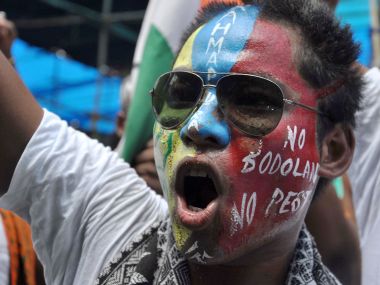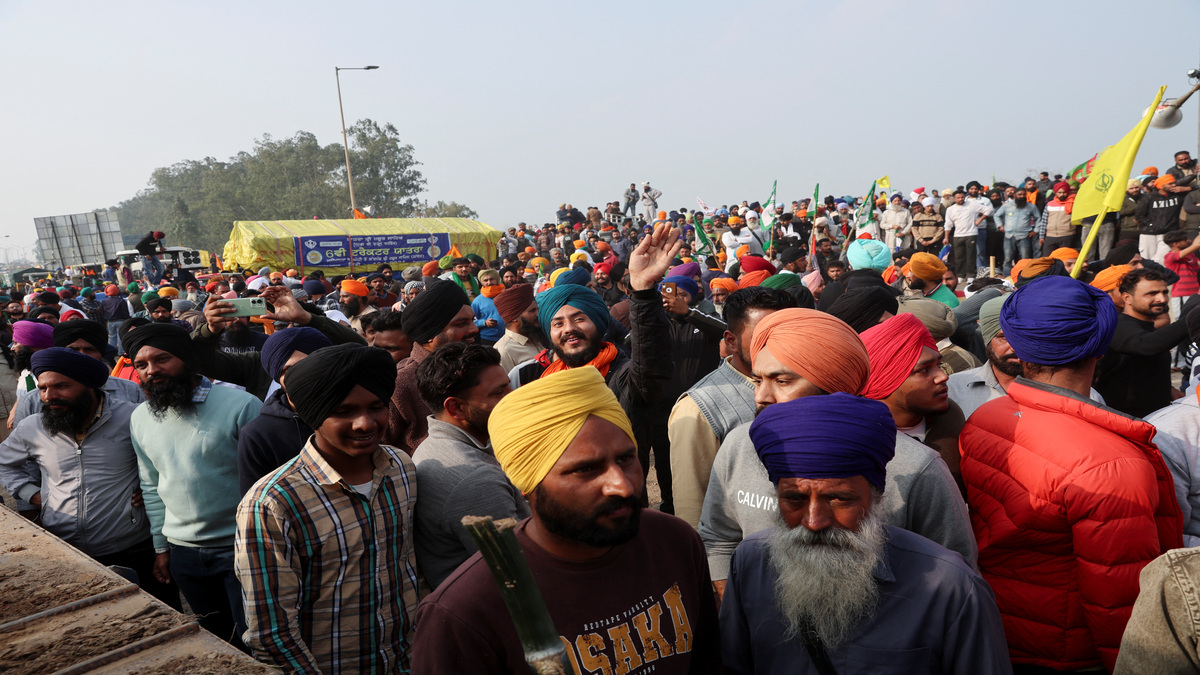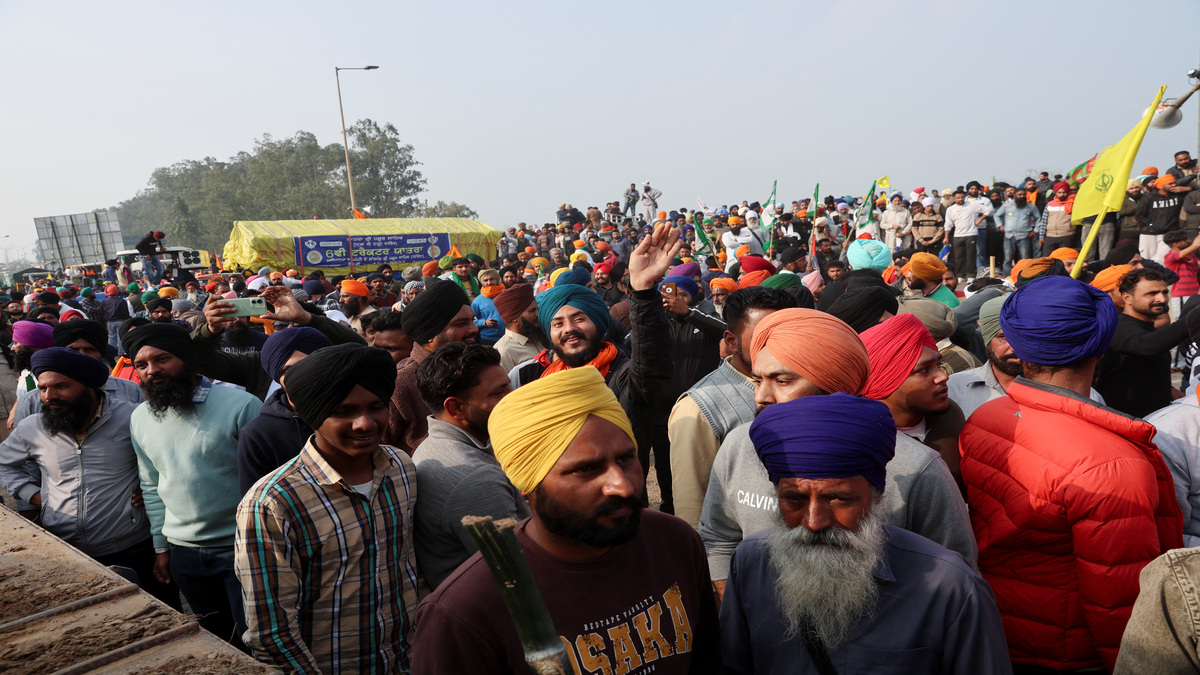Tamulpur, Baksa: Perennially plagued by a constant problem of illegal migration from neighbouring Bangladesh, rising demographic imbalance has invariably remained part of the electoral manifesto of major parties in Assam be it the parliamentary or Assembly elections. Now, a similar scenario is fast spilling over in the Bodo-dominated areas of north-western Assam but at an intra-state level.
As Assam gets ready to vote in the second and final phase of the ongoing Assembly poll, for some it has become a quest to preserve one’s cultural identity and fight for one’s rights against allegedly increasing Bodo hegemony. Panic has set in among many people from the non-Bodo communities that if the demand for Bodoland is accepted as announced by BJP leader Himanta Biswa Sarma at a poll rally in Tamulpur recently, the proverbial doomsday may not be too far away.
“If Bodoland becomes a reality, the BTAD (Bodoland Territorial Area District) would become like Tripura where the original Tripuris lost out to the Bengalis. Ours is a last ditch effort to save the Assamese culture. There are no facilities for non-Bodos in BTC (Bodoland Territorial Council)-governed areas be it appointments in jobs or awarding contracts. The Bodos enjoy 95 percent of the facilities,” Sanmilita Janagosthiya Aikya Mancha candidate from the Tamulpur Assembly constituency Girish Mahanta told Firstpost.
The Sanmilita Janagosthiya Aikya Mancha (SJAM) was formed ahead of the 2014 Lok Sabha polls largely to protect the rights of the non-Bodos in the BTAD region. Former commander of the elite strike force 709 battalion of the United Liberation Front of Assam, Naba (Hira) Kumar Sarania had won the Kokrajhar Lok Sabha seat in the last parliamentary polls. Significantly, Kokrajhar is also the capital of the BTC-controlled districts of — Kokrajhar, Chirang, Baksa and Udalguri.
However, there is another factor that has clearly worried the SJAM candidate.
“There are a few non-Bodos who were lured into the larger Bodo plan with the help of money. These people are not worried about the future. We do not want Bodoland to happen. We even want the exclusion of the non-Bodo villages from the BTC-administered areas. Things have reached such a level that Assamese has become the fourth language in all official communication of BTC. It appears after Bodo, Hindi and English. However, it is the leadership that we have problems with but not with the average Bodo people,” Mahanta, a retired headmaster, said.
What has appeared to be the major bone of contention is the population distribution.
“Bodos form only 23 percent of the population in the BTC area while the rest are non-Bodos,” said another SJAM member Jogesh Talukdar.
While Sarania was out campaigning for SJAM candidates, his septuagenarian mother, and sister, who live in their modest ancestral home in Kumarikata are relieved that the MP is fighting for their rights.
“Not knowing the Bodo language has become a huge problem. If we go to a bank they won’t even bother to serve us because we don’t know the language. It has become so difficult that we now prefer to keep whatever we have in cash at home. If Bodoland happens, we won’t even have the freedom to dress as we want to. We might be forced to wear the Dokna (Bodo traditional dress for women),” said Dipandita Deka, Sarania’s sister.
“Selling and buying of land for non-Bodos has become nearly impossible without involving a Bodo person. There won’t be any registration of land for outsiders. We don’t want Bodoland. The fear factor should go away. Instead the focus should be on health and education,” she said.
Sarania’s brother Dilip is also contesting the poll as a SJAM candidate from the Sidli Assembly constituency.
The United People’s Party (UPP), which has forged an alliance with the Congress for this Assembly election, however denied all concerns raised by the SJAM.
“SJAM is nothing but political opportunism. The Bodos are at peace with all communities including Muslims. There are equal opportunities for all here (BTAD areas),” said UPP, Tamulpur block secretary, Phanindra Narzary. He even rejected the contention that buying and selling of land is a problem. “People who have been living here before the BTC was formed in 2003 won’t have any problem in buying or selling of land as per the sixth schedule of the Indian Constitution,” Narzary said. The BTAD was formed as per the provisions of the sixth schedule of the Indian Constitution.
Hagrama Mohilary-led Bodoland People’s Front (BPF), which snapped its eight-year-long ties with the Congress last year and has now joined hands with the BJP for the Assembly poll, did not believe the non-Bodos as the marginalised class.
“That Bodos, which form less than 30 percent of the entire population in the BTC-administered areas, are denying rights to other communities is a complete sham spread by the Congress. All those who are raking this as an issue are seeking political attention. They are turning politics into business. BPF has always ensured equal rights and opportunities for all. Our joining hands with the BJP is an effort to remove all biases created by the Congress,” BTC executive member and BPF leader Deben Boro told Firstpost.
Notwithstanding their political acrimony, both the UPP and BPF maintained that non-Bodos are not subjected to treatment akin to second-class citizens, a claim highly challenged by those in SJAM — an umbrella organisation of 23 non-Bodo ethnic and linguistic communities residing in Bodoland.
Saddled precariously on a cauldron of widening linguistic and cultural differences, both Bodos and non-Bodos would have to come forward to find a political solution soon lest these differences spill over from an electoral battlefield to an actual battlefield. As of now, time is fast running out and the blame game is simply on.


)




)
)
)
)
)
)
)
)